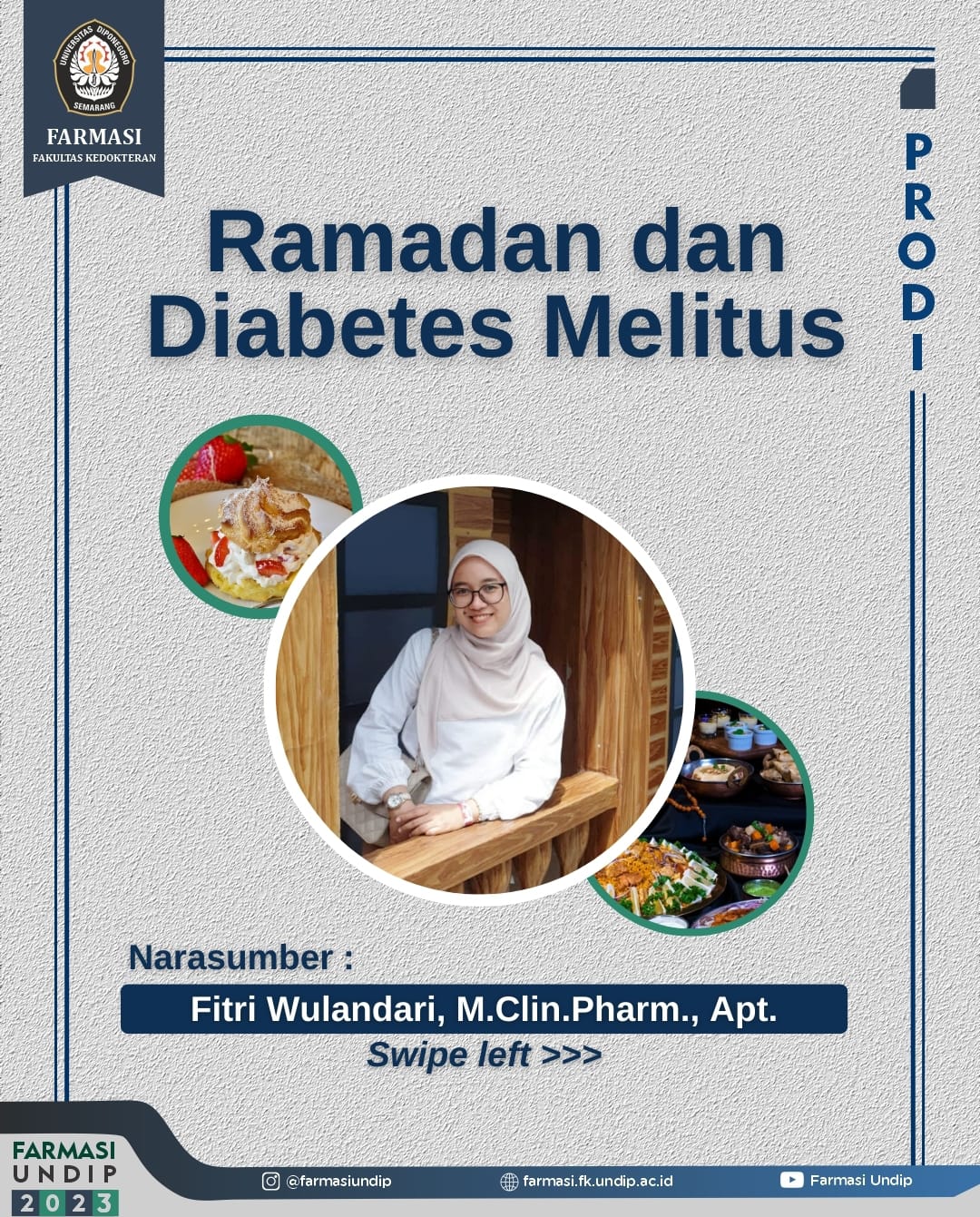Fasting is one of the pillars of Islam for Muslims and is mandatory for healthy individuals. Then what about individuals with diabetes mellitus? Can fasting affect his overall health condition? What are the things that need attention. Therefore, let’s read the explanation from Mrs. Fitri Wulandari, M.Clin.Pharm., Apt. below.
Q: How does glycemic change during Ramadan fasting in healthy individuals?
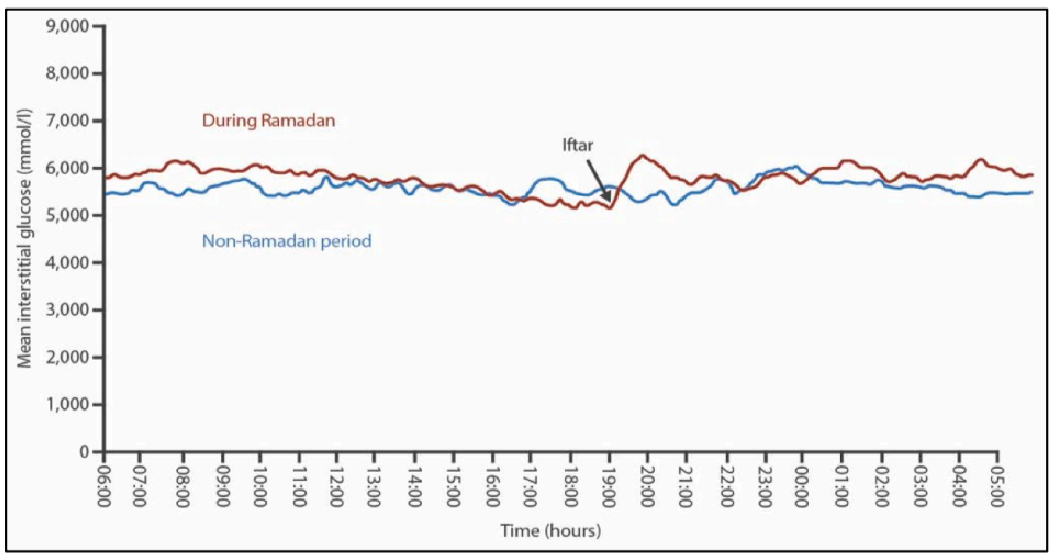
A: In healthy individuals in a fasted state, blood sugar levels decrease. This leads to decreased insulin secretion and increased breakdown of glycogen and the process of gluconeogenesis occurs. Glycogen can maintain blood glucose levels for the brain and tissues for up to 12 hours. If the fasting period is more than 12 hours, then there is a breakdown of fatty acids to maintain glucose supply. From various studies the value of Continuous Glucose Monitoring (CGM) blood glucose in healthy individuals during Ramadan is stable, even related to beneficial effects on lipid profiles.
Q: Can people with Diabetes Mellitus fasting?
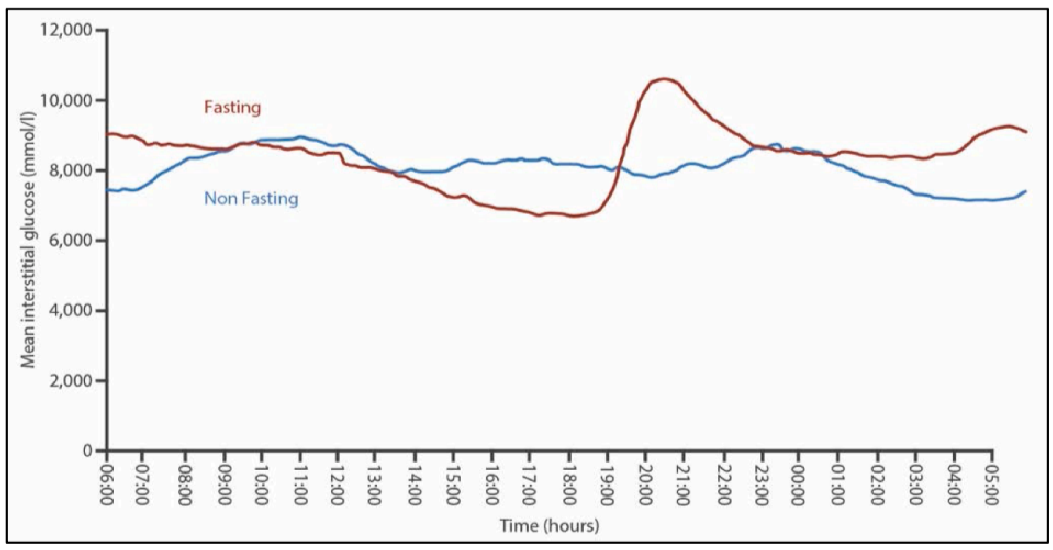
2021, https://doi.org/10.1016/j.diabres.2021.109185
A: In individuals with Diabetes Mellitus (DM) during fasting, insulin resistance and deficiency occur which can cause excessive glycogen breakdown and increased gluconeogenesis, so that the risk of hypoglycemia, hyperglycemia to diabetic ketoacidosis increases. The results of the CGM profile of individuals with DM show that blood glucose levels are unstable or there is variability in blood glucose levels during Ramadan. Therefore, individuals with DM can fast with attention to risk stratification, which is divided into 3 categories:
1. High risk, there is a possible risk of becoming unsafe
2. Moderate risk, there is a possibility of the risk of fasting becoming less safe
3. Low risk, there is a possibility of safe fasting
This risk category is assessed by doctors by several risk elements, which leads to the severity of the risk of complications that occur during Ramadan.
Q: How is the dose adjustment for antidiabetic drugs?
A: Adjustment of drug therapy for individuals with DM is done in consultation with a doctor first, in order to obtain the right therapy regimen and prevent side effects or complications that may occur.
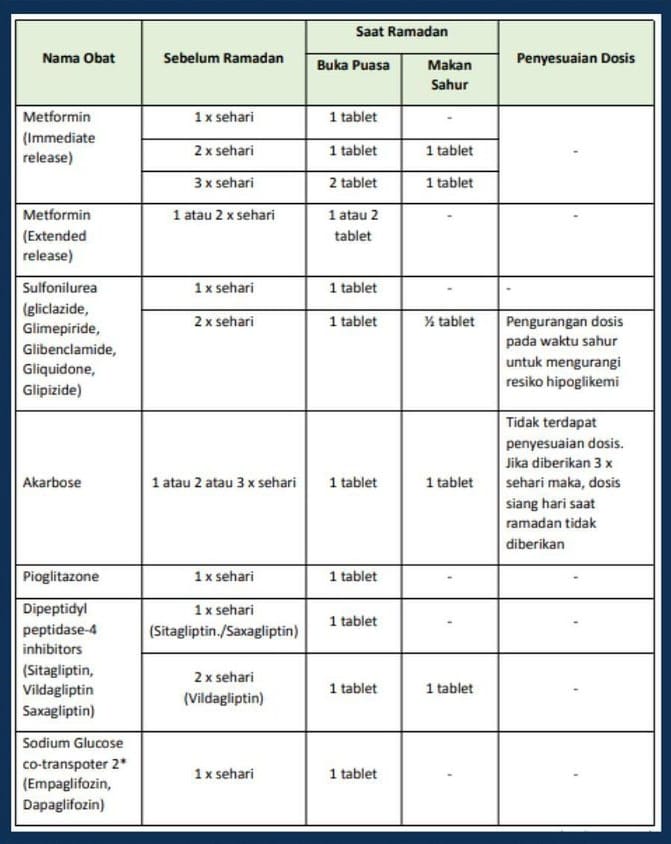
The use of insulin in individuals with fasting diabetes requires dose adjustments that depend on each individual and are performed by a physician. One of them refers to the results of daily blood sugar checks.
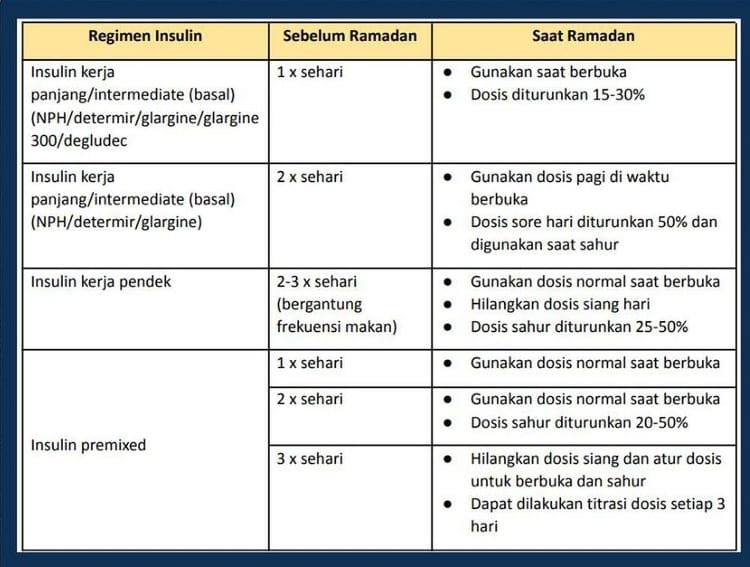
Q: When should blood sugar levels be checked in DM individuals who are fasting?
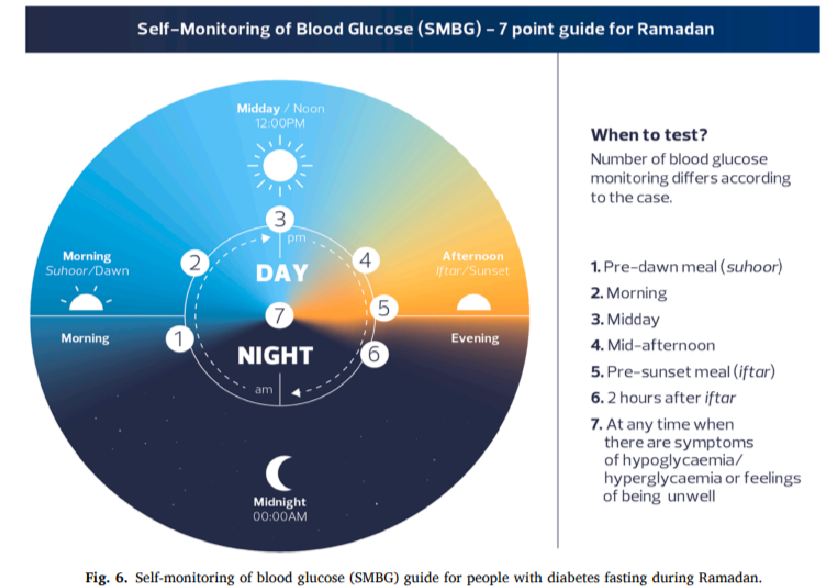
A: Monitoring blood glucose levels independently is highly recommended for DM individuals with very high and high risk to still choose fasting, is that pre-dwan meal (suhoor), in the morning, midday, mid-afternoon, pre-sunset meal (iftar), 2 hours after iftar, and any time when there are symptoms of hypoglycemia or hyperglycemia. For groups of DM individuals with low risk, monitoring blood glucose levels is still recommended before suhoor, midday, pre-sunset meal (iftar) and any time if there are complaints of hypoglycemia and hyperglycemia. Therefore, DM patients should be educated about the symptoms of hypoglycemia, dehydration and other complications that may occur, and can cancel fasting if blood glucose levels <70 mg/dl or > 300 mg/dl.
Q: What are some fasting tips for patients with DM?
A: 1. Meet the needs of nutrients and fluids during Ramadan; 2. Avoid foods that contain a lot of sugar or have a high glycemic index after breaking the fast and between meals; 3. Avoid caffeinated drinks (diuretic) because they can cause dehydration; 4. Limit strenuous physical activity such as exercising for a long duration while fasting, especially before breaking the fast because it increases the risk of hypoglycemia and dehydration; 5. Recognize the signs of hypoglycemia and hyperglycemia, monitor blood glucose, and seek advice from your doctor or pharmacist nearby.
———————————————————————————————————-
Pharmacy Study Program | Faculty of Medicine | Diponegoro University | 2023 | Ig: farmasiundip

